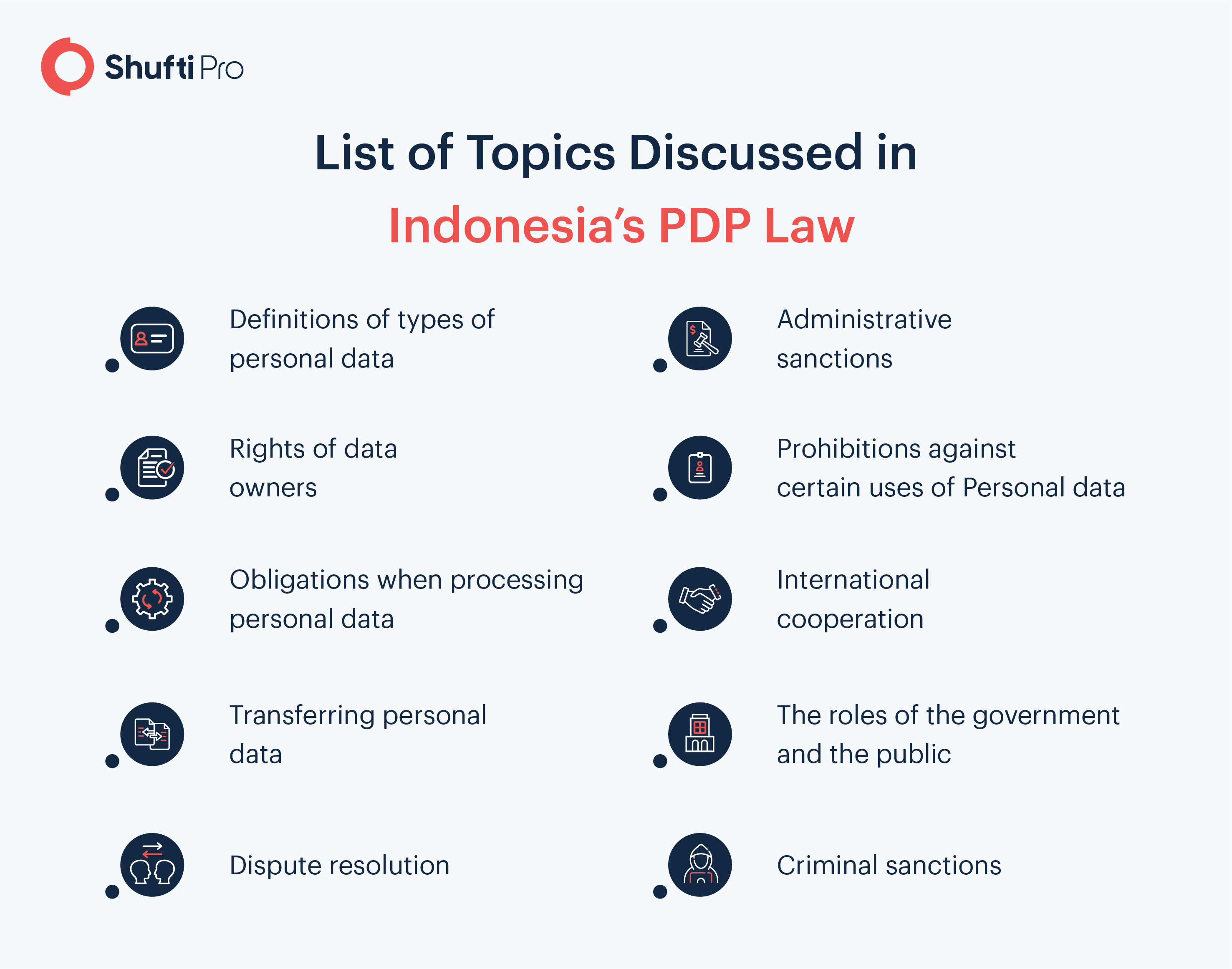Indonesia’s First-ever Comprehensive Law on Data Privacy – the PDP Bill

Being the largest economy in Southeast Asia, Indonesia is experiencing enormous growth in the digital ecosystem. By 2020, the country had 338.2 million mobile connections, 175.4 million internet users, and 160.0 million social media users. However, this growth has introduced challenges for ensuring personal data protection (PDP).
With personal data leaks, data thefts, and ID fraud becoming a recurring problem, the Indonesian government submitted the PDP Draft Bill to the Chairperson of the Indonesian House of Representatives in 2020. The bill is set to become law later this year, introducing key updates such as data transfer rules, ownership rights, data processing guidance and much more. This blog will shed a light on the highlights of the PDP bill.
What is Personal Data Privacy?
Personal data privacy, also known as information privacy, refers to protecting sensitive data such as an individual’s Personally Identifiable Information (PII), intellectual property data, and financial information. Personal Data Protection (PDP) is essential for ensuring regulatory compliance to privacy laws, as well as ensuring the confidentiality and immutability of the data.
Why is the Indonesian PDP Law Important?
While there are several personal data protection laws existing in the country, they remain scattered under various regulations. The main point of reference for data protection is the Law on Electronic Information and Transactions in Indonesia. The PDP law will become the first Indonesian law that includes specific, comprehensive guidance regarding the protection of personal data via both, electronic and non-electronic systems.
Secondly, it should be noted that the legislation is based on the EU’s General Data Protection Regulation (GDPR). This means that businesses and consumers within Indonesia will be subject to the same data rights and processing procedures as the EU.
Who Does it Apply to?
The Personal Data Protection law will be applicable to all business entities that deal with the personal data of Indonesian citizens, regardless of their geographical location. These business entities can fall in either category, private or public sector, whether located aboard or within Indonesia. The primary aim of the law is to protect all sensitive information being processed manually or digitally by individuals or corporations.
Key Takeaways of the PDP Law
Indonesia’s updated data protection bill will soon be introducing changes to revamp the country’s data privacy rules. Here is a brief summary of the PDP law.

1- Personal Data Definition and Categories
The definition of personal data mirrors the definition provided by the EU’s General Data Protection Regulation. Additionally, the type of data has been subdivided into two main categories; general and specific.
- General Personal Data: This includes data such as an individual’s full name, age, religion, and citizenship which is collected for the purpose of identity verification.
- Specific Personal Data: This type of data includes financial information, healthcare data, biometric information, genetic data, life/sexual orientation, political stance, criminal records, child data, and so on.
2- Rights of Personal Data Owners
While the rights of personal data owners were not explicitly explained previously, the updated draft outlines eleven rights, similar to the ones mentioned under the GDPR. This includes the right to terminate the processing of personal data, deletion of personal data, the right to sue and receive compensation over data privacy violations, and much more.
3- Identification of Key Roles
The PDP law separates the roles of “data controller” and “data processor”.
- Personal Data Controller (PDC): This is the party responsible for determining the purpose of collecting data, processing the personal data, and defining its retention period. Before data processing begins, the PDC is required to obtain consent from the Personal Data Owner, either in written or recorded form.
- Personal Data Processor (PDPr): This party processes the information collected on the behalf of the data controller.
4- Appointment of a Data Protection Officer
To ensure that the data collected is being used for public service, both the PDC and PDPr are required to appoint a data protection officer. In addition to this, the data protection officer will also be responsible for ensuring the PDC implements activities for regular monitoring of personal data and the processing of large-scale personal data related to criminal offences.
5- Transfer of Personal Data
The transfer of personal data between two PDCs have been permitted, provided that the consent has been obtained from the personal data owner and the transfer is done in accordance with the PDP Bill. For transferring data outside Indonesia, two requirements need to be met. Firstly, the receiving country must have a law equivalent to, or higher than the PDP bill. Secondly, there must be a treaty between the receiving country and Indonesia.
6- Administrative and Criminal Sanctions
Two types of sanctions have been introduced for parties that fail to comply with the PDP Bill. These include the following:
- Administrative Sanctions: forms: a written warning, temporary halt of processing personal data, deletion or destruction of personal data, compensation, and administrative fines.
- Criminal Sanctions: Misconduct of personal data privacy can lead to imprisonment for up to seven years and confiscation of assets, on top of fines up to 70 Billion IDR (US$4.8 million).
How To Maintain Compliance with the Personal Data Protection Bill
To stay compliant with the PDP bill, entities will be given two years to implement necessary policies and procedures. The following action plans can be implemented to stay compliant.
- Review the current data protection procedures to ensure end-to-end data protection
- Review current contracts/consent with customers to include all the necessary clauses, such as the data owner’s rights, data transfer regulations, obligations when processing personal data, etc.
- Assess the business processes to ascertain the implementation of adequate procedures
- Ascertain proper implementation of PDP law by third parties to secure the collection and processing of personal data
- Invest in RegTech technologies and software to streamline compliance with regulatory requirements by automating compliance procedures
Summing it up
The GDPR-influenced Personal Data Protection Bill is soon to be introduced this year and is set to become Indonesia’s first comprehensive law on data privacy. This is a step in the right direction, given the vast crimes committed through breach of confidential data. By acknowledging the rights of the stakeholders involved, introducing precise sets of definitions, and presenting non-compliance penalties, the PDP bill is on its way to becoming one of the strongest data privacy laws among the fourteen Asian countries which currently have such laws in place.
Need more information? Talk to our experts!











